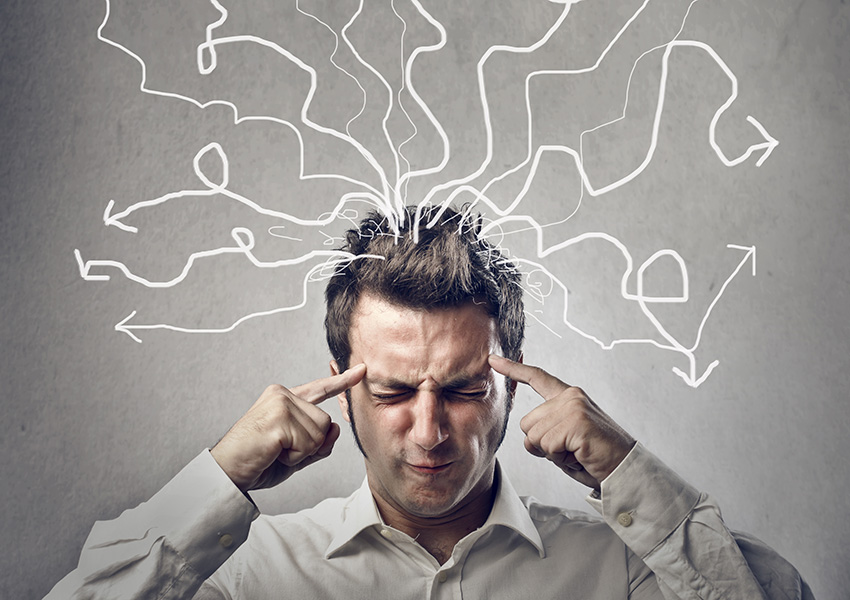Can You Think Yourself Sick?

Can you think yourself sick? Photo via Shutterstock.
Two publications wrote about “thinking yourself sick” this week. Both have a mind over matter angle, in that we can actually think ourselves into having diseases, conditions, and side effects to drugs, even if we are taking a placebo.
The New Yorker wrote about the “nocebo” effect, which is what they call the “placebo effect’s malevolent Mr. Hyde.” They cite “wi-fi syndrome”, which is the mysterious condition in which people say the waves used in mobile communication cause headaches, nausea, exhaustion, tingling, and even gastrointestinal distress, among other symptoms. And while most of us are always looking for a great wi-fi signal, people suffering from wi-fi syndrome (or think they are) will take drastic measures like moving to a cave or a mountain to be as far away from a signal as possible in order to be free of their “symptoms.”
The New Yorker explains the difference between a “placebo” and a “nocebo”:
With placebos (“I will please” in Latin), the mere expectation that treatment will help brings a diminution of symptoms, even if the patient is given a sugar pill. With nocebos (“I will harm”), dark expectations breed dark realities. In clinical drug trials, people often report the side effects they were warned about, even if they are taking a placebo. In research on fibromyalgia treatments, eleven per cent of the people taking the equivalent of sugar pills experienced such debilitating side effects that they dropped out.
So there any merit to “wi-fi syndrome”? The New Yorker says no.
As for Wi-Fi syndrome, a recent analysis of forty-six studies involving nearly twelve hundred volunteers concluded, similarly, that the signals do not cause the symptoms.
The same week, Prevention published a story that says if you think you are stressed, it is just as bad for your health as actually being stressed. Confused yet?
According to a new study published in the American Journal of Cardiology, researchers analyzed six studies to see how thinking you are stressed affects your heart. Participants were asked to self-report intense, frequent feelings of stress and then they were followed for 14 years to see if they were diagnosed with, hospitalized, or died from coronary heart disease. What they found: Participants who reported high levels of stress had a 27 percent higher risk of developing coronary heart disease. So were they really stressed or just thinking they were stressed? And is there even a difference?
What do you think? Is this a bunch of “The Secret” mumbo-jumbo or is there really a mind-body connection that is greater than we could imagine?


